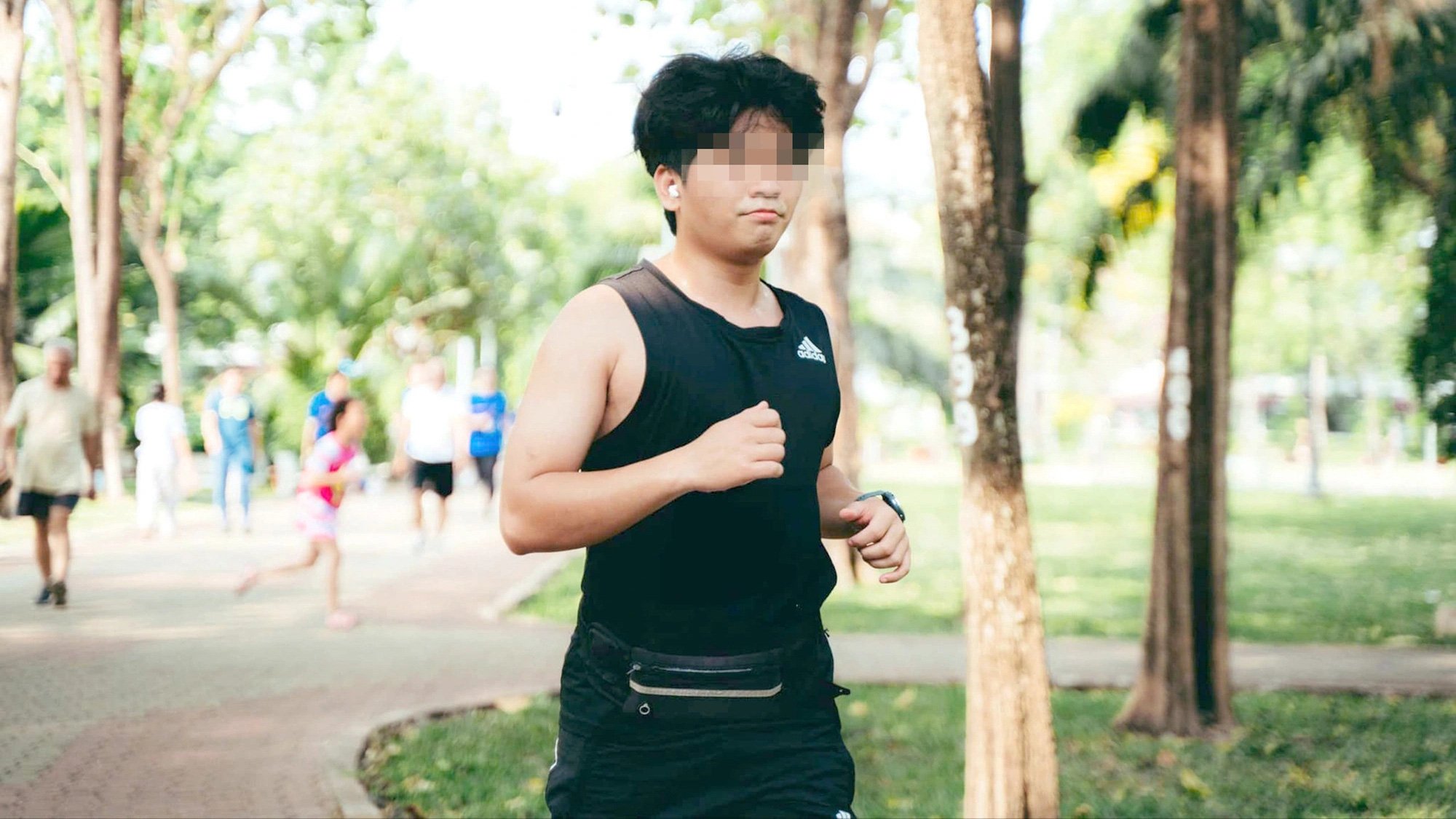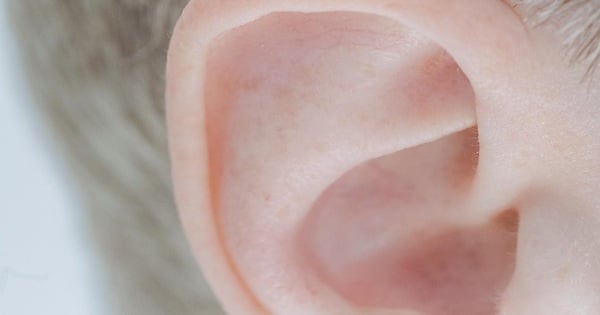
A young man jogs and listens to music at Gia Dinh Park, Phu Nhuan District, Ho Chi Minh City - Photo: THANH HIEP
Every morning, on the jogging streets in Ho Chi Minh City, there are many young people running while wearing headphones listening to music.
Ms. PTP, 19 years old, living in Binh Thanh District, goes to the park near her house every morning to walk for 1 hour.
During exercise, Ms. P. always wears headphones with two small buttons placed in her ears. In addition, when she comes home, she often wears headphones to listen to music...
May cause gradual hearing loss
Doctor CK2 Nguyen Thi Thanh Thuy, ENT Hospital of Ho Chi Minh City, said that according to the World Health Organization, a personal audio device is a device used to listen to sound or audio-visual content/documents, designed so that the user can flexibly listen while walking while using it, for example, smartphones and MP3 players are often used with headphones.
Listening time and loudness of sound when listening with personal audio devices are among the risk factors for hearing loss.
Hearing loss caused by exposure to loud sounds over a long period of time can cause gradual, cumulative hearing loss without obvious warning signs.
The output of personal audio devices, including headphones, can range from 75 - 136 dB. Maximum output sound levels vary depending on regulations and laws in different countries.
In nightclubs, discos, and bars, the average sound level can range from 104 to 112 dB; noise levels at concerts can be even higher. Noise levels at surveyed sports venues ranged from 80 to 117 dB.
Mr. Nguyen Thanh Vinh, deputy director of the ENT Hospital, said that if loud noise exceeds the threshold, it will damage the ciliary system in the Corti organ (the real hearing organ of humans).
In the early stages, excessive noise will damage the ciliary system in the organ of Corti, which then leads to thickening and fibrosis of the entire organ of Corti.
This is because the cells are subjected to strong sound pressure on the surface, the cilia are subjected to frequent impact and fibrosis, leading to loss of sound transmission function mechanically and neurologically.
Whether noise damages hearing depends on the loudness (measured in decibels) and the length of exposure. Hair cells are destroyed by continuous or repeated exposure to noise over a long period of time. When enough hair cells are destroyed, hearing is lost.
Listening to headphones is also an impact of sound directly into the ear. Cases of listening to headphones for a long time, with high intensity, loud sound can cause deafness due to noise...
Doctor Thanh Thuy pointed out the signs of hearing loss due to noise and loud sounds such as speech and sounds seeming distorted, difficulty understanding speech when listening to the phone, difficulty hearing consonants, difficulty hearing high frequency sounds such as birds, doorbells, telephones, alarm clocks...
In addition, people with hearing loss have difficulty having conversations in noisy places such as restaurants. These people also often ask others to speak more slowly, more clearly, or to speak louder, or to repeat what they say.
People with hearing loss often increase the volume of the TV or radio, which may be accompanied by tinnitus, such as ringing or hissing sounds. These people are also hypersensitive to certain sounds, which can cause discomfort or ear pain.
Hearing loss may be irreversible.
"Hearing loss caused by loud noise can happen immediately or it can take a long time to detect.
Hearing loss can cause physical and mental health effects, affecting learning and work," said Dr. Thuy.
Doctor Thuy advises patients with hearing problems to quickly see an ENT specialist and perform audiological tests to assess hearing such as tympanometry, stapedius reflex, audiogram, auditory brainstem electrode...
Through examination, doctors will determine the condition of the ear and promptly assess hearing to help restore hearing function better.
It should be noted that frequent or prolonged exposure to loud sounds can cause permanent damage leading to irreversible hearing loss.
It will first affect the high frequency region leading to progressive hearing loss, eventually affecting speech understanding and having a negative impact on the individual's quality of life.
To better protect your hearing, you should reduce the volume on your personal audio devices and wear earplugs when going to noisy places. You should limit the time you spend participating in activities with a lot of noise by taking short listening breaks and limiting the use of personal audio devices every day.
According to the World Health Organization, to listen to music safely, keep the volume below 60% of the device's maximum level, and use headphones that fit well and are noise-cancelling.
You can use apps on Google Play to help monitor and limit the volume of sound when listening, and also reduce the time spent listening to loud sounds.
Also, pay attention to the warning signs of hearing loss and get regular hearing tests.
Parents, teachers, and doctors can educate young people about safe listening. Entertainment venues should comply with regulations on safe noise levels, provide earplugs, and provide “chill out” rooms for customers to take breaks from listening...
Too loud sound will damage hearing
Every day, people are exposed to environmental noises such as televisions, radios, household appliances, and traffic. Usually, these noises are at safe levels and do not cause hearing damage. However, noise can be harmful when it is too loud.
Source: https://tuoitre.vn/nghe-tai-phone-cho-da-coi-chung-lang-tai-20241008224358875.htm




![[Photo] Unique folk games at Chuong Village Festival](https://vstatic.vietnam.vn/vietnam/resource/IMAGE/2025/4/10/cff805a06fdd443b9474c017f98075a4)

![[Photo] Prime Minister Pham Minh Chinh chairs meeting to discuss tax solutions for Vietnam's import and export goods](https://vstatic.vietnam.vn/vietnam/resource/IMAGE/2025/4/10/19b9ed81ca2940b79fb8a0b9ccef539a)

















































































Comment (0)